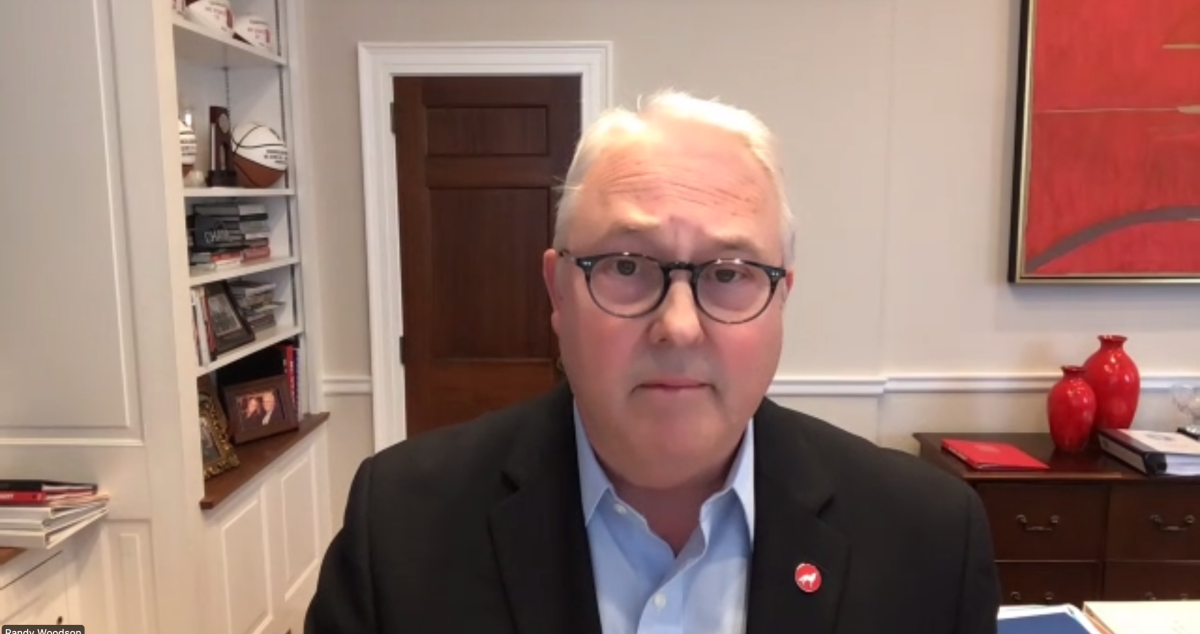At a Faculty Senate meeting on Feb. 22, Chancellor Randy Woodson and Provost Warwick Arden provided information on updates regarding enrollment funding and community standards.
After several updates, including the updating of an alma mater lyric and the acknowledgement of several faculty receiving special recognition for their work, Woodson spoke about a potential change to enrollment funding by the UNC Board of Governors.
“The board of governors has been considering a number of potential changes to what’s affectionately called the ‘Twelve Cell Matrix,’ which is the calculation used to establish the reimbursement cost of delivering student credit hours on each of our campuses for enrollment growth,” Woodson said. “It’s the formula that defines the funding we get when we teach more student credit hours one year over the previous year, and it varies.”
Woodson said the initial set of changes was not ideal for NC State and colleges like it.
“The board of governors were considering changes,” Woodson said. “Their first iteration of potential changes would have dramatically been a severe disadvantage for the Carnegie [R1] Institutions — us and [UNC-Chapel Hill] in particular — because it funds graduate education, both doctoral and masters, at the same level as undergraduate. It also would have put in jeopardy a lot of the work we do at NC State, because it did not recognize the differential cost associated with hands-on discipline like engineering.”
Woodson said feedback was given to the board of governors about the changes and a better form of updates to enrollment funding will be finalized in April.
“We provided feedback, and I’m proud to say the board of governors has been listening to that feedback and has offered modifications to the enrollment funding formula,” Woodson said. “They have reinstated funding for our affectionately called fourth quadrant of the Twelve Cell Matrix which is nursing and engineering … to acknowledge the higher cost of education associated with those disciplines. They’ve also suggested increased funding for doctoral students, and I’m told that there will be some additional concessions for master’s students as well in the proposed revisions.”
Woodson ended his updates by acknowledging the university’s community standards update.
“In response to the changing policies from Wake County and the city of Raleigh, in acknowledgement of where we are with regards to the spreading of the virus and the dramatic changes associated with rates of infection, the feedback we have received from faculty and staff, we have instituted new community standards effective [Feb. 28th],” Woodson said.
Arden continued the update on community standards, starting with masking.
“We will continue to have masking in the classroom, in research labs, in clinical settings such as student health and vet med and on buses, and there will likely be some select service areas including dining services where the staff will have to continue to mask,” Arden said. “Other than that, the mandatory masking at all times in all buildings will be dropped on [Feb. 28].”
Arden then explained the update to testing requirements.
“Testing will continue to be available on demand for all faculty, staff and students in the current locations using our current testing service,” Arden said. “The one thing that will change is we will drop mandatory testing for unvaccinated individuals, those who have not uploaded their vaccine materials to student health.”
Arden said he thinks the changes to community standards are appropriate and in line with mandated changes across the state.
“I think it is a graded response, an appropriate response,” Arden said. “It’s very much in line with the announcement last week that came from the governor, the North Carolina Department of Health and Human Services, and from Raleigh [and] Wake County who are changing theirs.”













